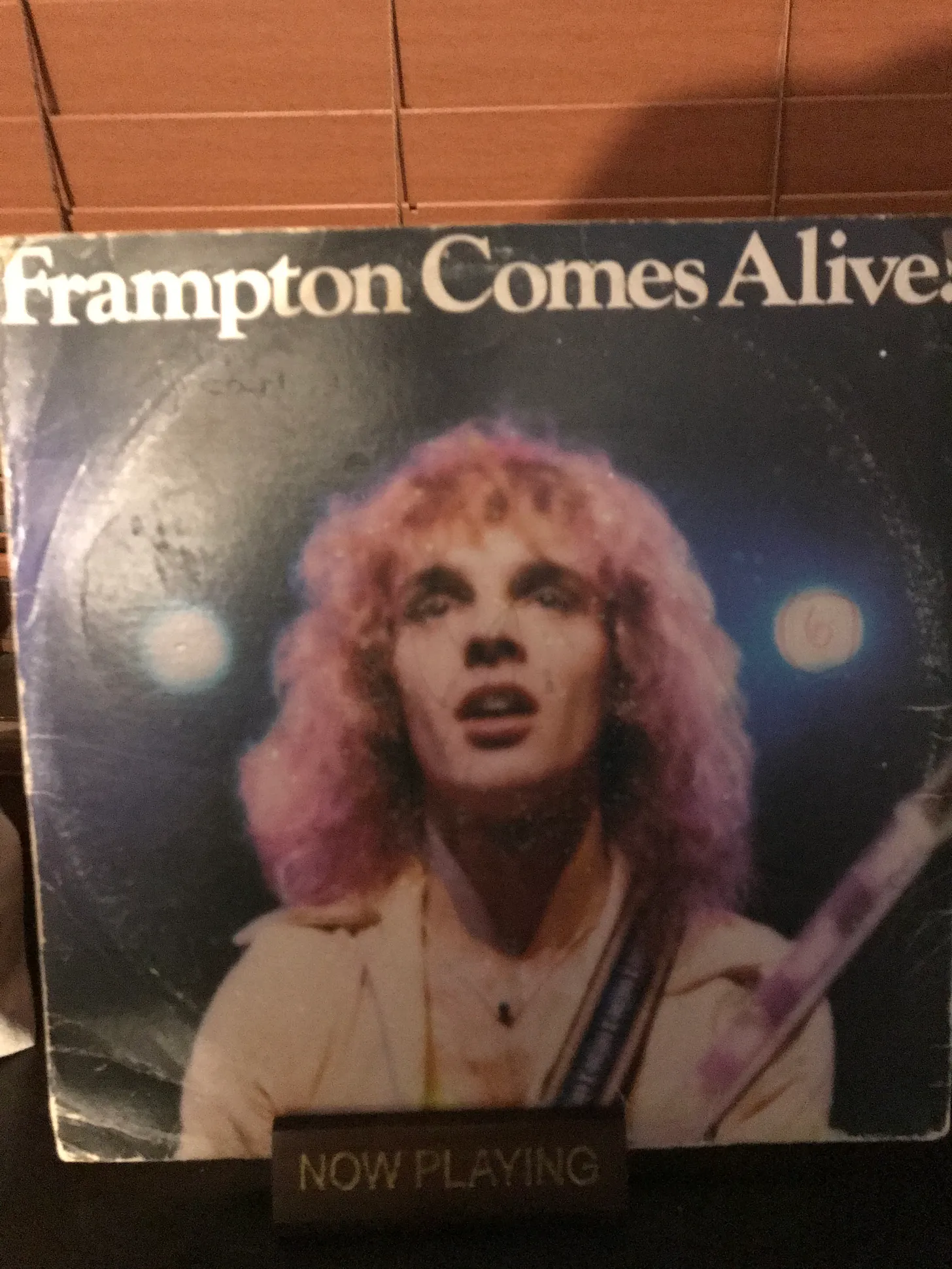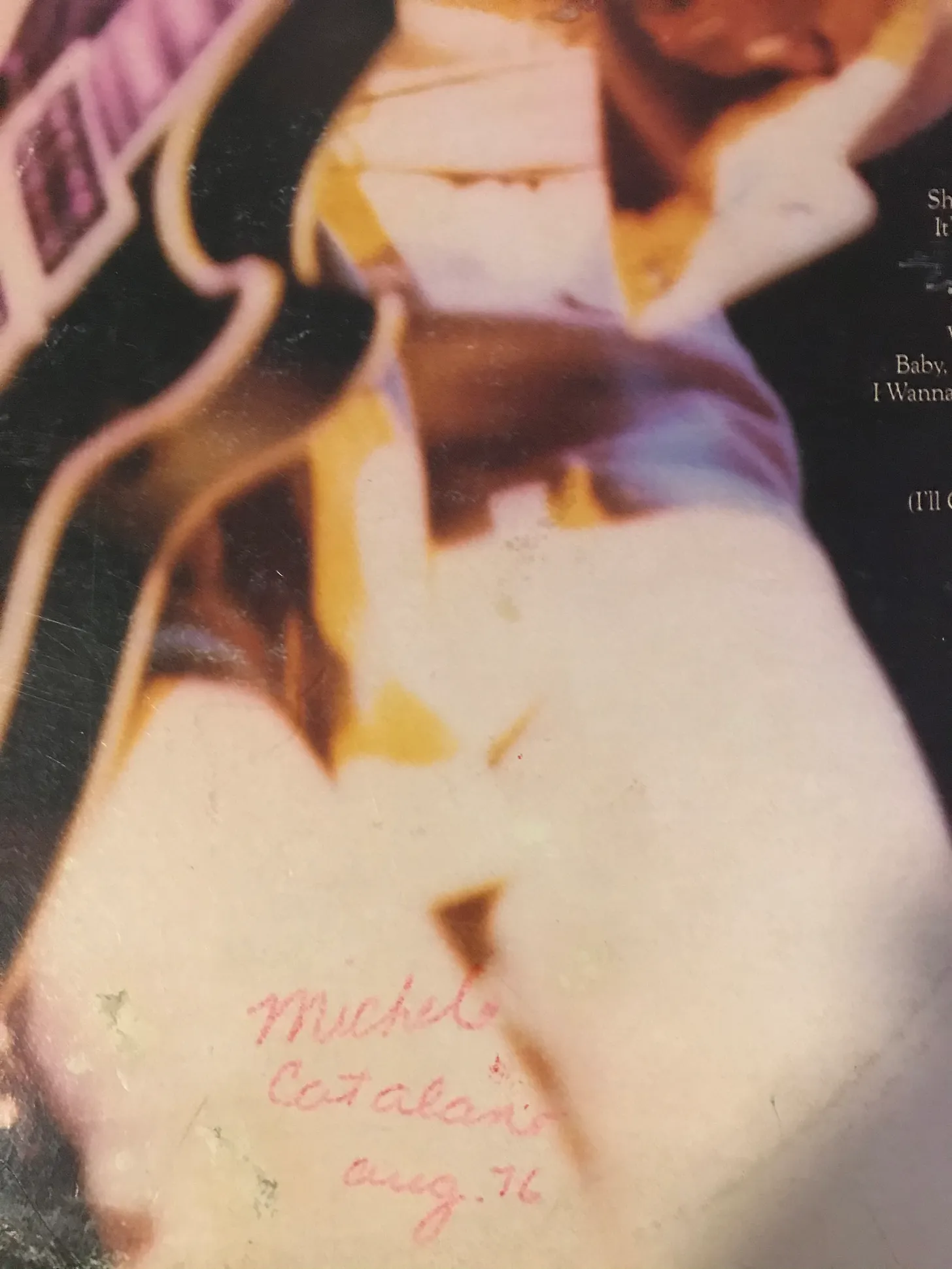
Be Sure to Wear Flowers in Your Hair
Published on Jan 19, 2026
WALK OUT TO WINTER: falling in love with—and to—Aztec Camera's High Land, Hard Rain
Published on Dec 26, 2025
First Anniversary
Published on Dec 17, 2025
Introducing: The IHTOV Zine
Published on Dec 15, 2025
More Liner Notes…
Do You Feel Like We Do - a tale of Peter Frampton and friendship
by editor Michele Catalano

I was reunited with some albums I parted ways with a long, long time ago when they somehow ended up in possession of my sister. I hadn’t seen them in years, but I thought of them often, wondering where those REM and U2 and XTC records went to. Little did I know they were residing in Rhode Island with my sister, who recently surprised me with a canvas bag filled with those albums.
Among them was one Frampton Comes Alive, an artifact from the 70s that I gave no thought to when reminiscing about my favorite missing albums. The record is battered and worn. The memories are not.
Nearly 45 years ago, I was standing in the back of a 7–11, smoking cigarettes with a couple of friends. It was the weekend of my 14th birthday. It was one of those sweaty August days, when the Long Island humidity was at its worst, sucking your breath away, making even talking a laborious task. We stood around, not saying much, except to occasionally mutter a complaint about boredom, summer, the heat, parents. Everyone was crabby and I thought about just going home and spending the rest of the day in my air conditioned bedroom listening to music and writing brooding poetry.
Then Gloria showed up. Gloria wasn’t much for niceties — she was a tough chick transplanted here from the city — and she kind of shoved something into my hands and said “happy birthday.” It was wrapped in tin foil and sunlight bounced off the package. At first I thought she was telling me I needed a tan — back in the days before we knew how bad the sun could be for you, we wrapped albums up in tinfoil and held them up to our faces to reflect more sunlight onto our skin in an attempt to tan/burn more deeply. Or set ourselves on fire.
I realized this was a present she was handing me. Gloria, who I sometimes swore was my arch enemy rather than a friend, was giving me a birthday gift. I looked at her quizzically, sure this was some kind of trick. I may have had friends, but they weren’t very good friends. They were more like people I smoked cigarettes and drank stolen beer with, people I didn’t trust. I was sure I’d open this tinfoil package and it would be some kind of gag gift.
But I opened it, at Gloria’s soft urging. The minute I tore through the tinfoil I could see what it was, I recognized it just from the splotch of color I had uncovered. I hastily ripped the rest of the wrapping off and held my prize aloft.
Frampton Comes Alive.
I had at some point, like most 13 year old girls of the time, become obsessed with Peter Frampton. That hair. Those eyes. That voice. That face. Everything about him spoke to a young girl’s rock and roll fantasies and it didn’t even matter to me that the music was mostly mediocre; Peter Frampton was the King of Everything at that particular time in my life, dethroning Robert Plant, my previous King.
I was overcome with gratitude and somewhat bemused by Gloria’s birthday offering. We weren’t particularly close. We weren’t the kind of friends who shared deep, dark secrets. We fought more than we got along. But for whatever reason she decided to get me a birthday gift, and a really thoughtful one at that.
“Let’s go to my house and listen.”
We left the guys behind the 7–11, walked to my house and escaped the heat of that August day. I carefully slid the first album out of its sleeve and placed it on my turntable. We sat on my bed and didn’t really talk and listened in a somewhat awkward silence. We were on album two, side three, song one, when Gloria finally said “Just put on that song.” I flipped to side four and put on “Do You Feel Like We Do.” We listened to it about four times in a row before Gloria stated the obvious.
“This album kind of sucks.” “Yea, you’re right.” “But damn he’s gorgeous.” “Yep.”
We stared at the album cover, started “Do You Feel Like We Do” over again. It was the only song I really liked and even then, I felt myself getting bored midway. It was a revelation to me that I liked Peter Frampton mostly for his looks. It felt shallow.
“Thank you for buying this for me. That was really nice of you.” I wanted to make sure Gloria knew I was thankful, that just because the album sucked didn’t mean I didn’t appreciate the thought of the gift. “Sure. No problem. Hey, I gotta go.”
I had thought for a brief second that I was finally bonding with Gloria, that whatever chasm was between us would somehow be filled with a shared love of Peter Frampton, but that didn’t happen. Gloria left and we went on being just two people who happened to hang out with the same crowd. I never understood why she bought me a birthday present at all, let alone something she thought I would really like. I wondered if I should have pretended to enjoy the album. But I was always trying to impress Gloria and I was too eager to find this common ground with her of not liking the record to pretend I liked it just out of common courtesy.
I hung the album cover on my wall. Shallow or not, Frampton was damn fine to look at as I sat on my bed writing my teenage poetry. For a long time, I hung on to the fact that Gloria bought me that album as a sign that she may have liked me as a friend more than she let on. Or that she was nicer than she liked to let people think she was.
I left that crowd in September when I transferred to a private high school and lost touch with all of them. But that album hung on my wall for a while, a testament to both Peter’s good looks and Gloria’s brief foray into friendship.
Despite the fact that I don’t really like the album, it feels good to have this physical piece of nostalgia, the very record Gloria wrapped in tinfoil and handed to me behind that 7-11. I won’t hang it on my bedroom wall, but I will keep it with all my other albums of the time, all of which are in a way testaments to friendships come and gone.


